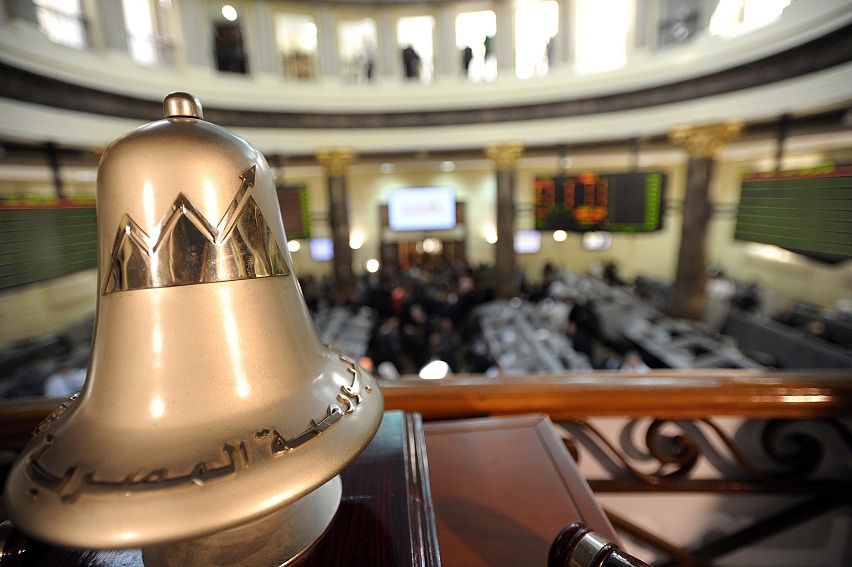By Mohamed Ahmed
The Egyptian Stock Exchange (EGX) lost 11.4% in three weeks, particularly from the beginning of November, in spite of sessions with relative increases, whereby the increase in Wednesday’s and Thursday’s sessions was by 0.1% and 2.42% respectively.
With the high fluctuation rates and other similar risks, executive directors in brokerage and assets management firms provided recommendations to help investors reduce risks and avoid falling prey to massive losses.
Although these investment recommendations differ from one expert to another, they all aim at scaling risks, rather than achieving short-term profits.
Adel Abdel Fattah, Chairman and Managing Director of the Egyptian Arabian Company Themar for Securities Brokerage (EAC), said the fluctuation rate is very high in the capital market right now, which requires making hedging against losses a main goal for investors.
He believes the most important recommendation for traders is not to buy any stocks through margins, which is buying through obtaining loans from brokerage companies. This is important because trading with debt requires stable stock performance.
He explained that obtaining loans with the current fluctuations will push investors’ losses to a certain level, exposing them to compulsory selling of stocks on the request of brokerage companies. This process is known as the “call margin”. This often causes major losses on one hand, and the squandering of opportunity to achieve a rise in the stocks in the following sessions on the other hand.
Abdel Fattah explained that investors should focus on the buying process of stocks from companies with high net worth because of their high-performance stocks, such as real estate. In that case, stocks will be more likely to increase with the market rise, compared to defensive stocks, like those of cement companies.
Defensive stocks are common in companies that distribute high cash-profit coupons. This contributes to achieving relative stability of the stocks, or at least making them less vulnerable to price fluctuations, compared to the rest of the stocks during decline periods.
Abdel Fattah advises investors not to carry out quick selling processes currently because of pressure from negative events, where there is at least one negative event every week, whether locally, regionally or internationally.
Abdel Fattah expects that there will be a rise in the EGX this week to reach 6,800 points, compared to 6,569 points during last Thursday’s session.
Adel Kamel, Investment Manager and Managing Director of assets in Pharos Holding for Financial Investments, said investors are better off forming purchase centres on the long-term, equivalent to nearly six months, while staying away from quick trading.
Despite giving this recommendation, Kamel noted that the market lacks investors in the real sense, adding that it is still controlled by gamblers, especially individuals.
He pointed out that investment funds were exposed to the process of documents retrieval by investors during the past period. Nevertheless, it cannot be confirmed that funds caused the decline in the EGX. This is because the size of funds now has become limited, compared to the case in 2008 when funds with capital of EGP 1bn were traded in the Egyptian market.
A recent research paper issued by the research department in Pharos revealed that the current risk premium in the Egyptian market is 7%, and is expected to increase over the upcoming period.
In the paper, investors were encouraged to increase the shares of cash liquidity in their investment portfolios for several reasons, most prominently because foreign investors may sell the stocks of the Commercial International Bank (CIB), which is the largest component of the EGX, in addition to other main stocks they are keeping in Egypt due to their fear of the intensification of military mobilisation against “Islamic State” militants.
Moreover, a lack of assets in Egypt is especially expected due fears of being unable to access hard currency over time.
The research pointed out to a more severe reaction by the government and monetary authorities, in the aftermath of the Paris attacks, to halt the growing pressure on the Egyptian pound. The reaction could include fiscal austerity measures, another raise in interest rates, or intensification of restrictions on capital movement.
Pharos linked the current selling process and the enormous fluctuations to the preparedness of the US Federal Reserve to raise interest rates. It is likely that sales will reach their peak during the second week of December, just before the US Federal Reserve meeting on 15 and 16 December.
Based on these factors, Pharos advises investors to stay away from risks as much as possible or at least until stock valuations decrease by 10%-15%.
In the case of investors wanting to buy now, it is better that they focus more on defensive stocks, as well as stocks that react positively with the dollar.




